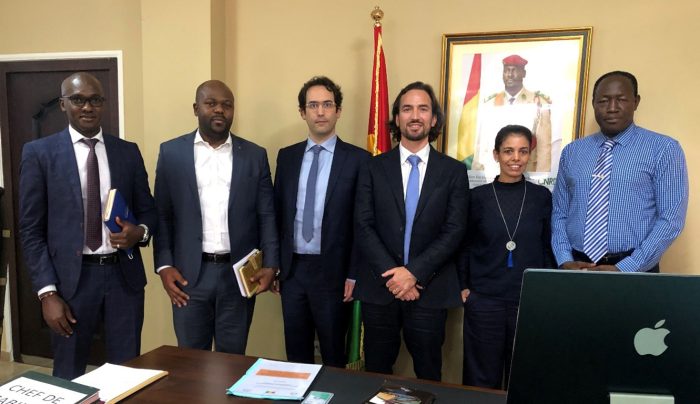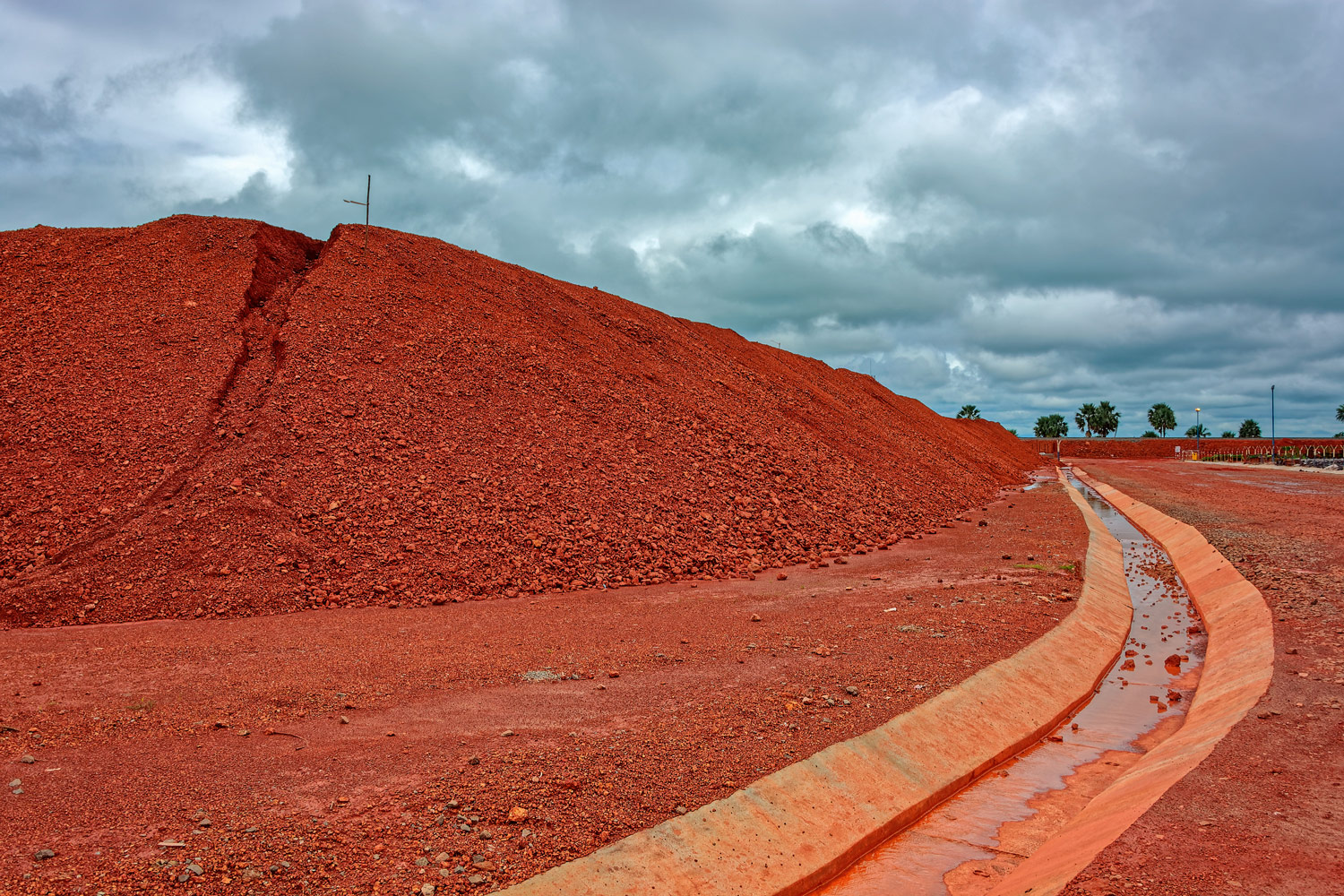In the coastal region of the Republic of Guinea, in West Africa, the bright red soil contrasts with the lush greenery of the tropical climate. This expansive area is known as Lower Guinea and has traditionally been an agricultural region, but it is also rich in mineral resources and hosts many of the country’s bauxite mining projects.
The Challenge
Guinea hosts the world’s largest reserves of bauxite—the main ingredient of aluminum and a key metal for modern infrastructure and the energy transition. Paradoxically, Guinea is also one of the world’s least developed countries. Its government needs to maximize the financial return from its mineral wealth to address a number of pressing development priorities.
Extractives are a central pillar of Guinea’s economy, responsible for an estimated 18% of GDP, 79% of exports, and 31% of government revenue. Bauxite exports from Guinea more than quadrupled between 2015 and 2020, from 20 to over 80 million tons per year, making Guinea the largest supplier of bauxite to China, the world’s top producer of aluminum. But government revenue from bauxite mining did not keep pace, rising only incrementally from USD 250 to USD 370 million between 2016 and 2020. How could this be?
Our Role
As a member of the Intergovernmental Forum Mining, Minerals, Metals and Sustainable Development (IGF), Guinea requested assistance to understand how it could optimize its financial benefits from mining. In 2020, the country entered a deep-dive support program on tax base erosion and profit shifting in the mining sector. The work was led by experts in the IGF Secretariat and the Organisation for Economic Co-operation and Development (OECD) and delivered alongside Tax Inspectors Without Borders.
IGF experts examined financial information from mining companies and analyzed the global bauxite and aluminum markets. Together with government officials, they discovered a pricing problem behind Guinea’s stagnating revenue.
Mine operators were selling most of the new bauxite production to affiliated companies, often at a flat, heavily discounted price. The lower bauxite prices meant less export revenue, smaller declared profits, and less tax revenue. This mispricing also hindered Guinea’s industrialization agenda by allowing refineries in Asia to keep a competitive edge over potential new refining projects close to extraction sites in Guinea.
The IGF and OECD organized training workshops for officials in the mining and budget authorities, supported them in analyzing the main causes of mining revenue loss, and developed recommendations to help Guinea establish effective transfer pricing rules and address bauxite mispricing in related-party transactions.

IGF and OECD tax experts meet with government officials in Guinea in July 2022.
Our Impact
In May 2022, the Government of Guinea created an inter-agency committee that worked with the IGF and partners to establish a minimum bauxite price that mining companies would have to apply in their sales to affiliated companies under normal economic conditions. This so-called “reference price” is based on market benchmark prices, is simple to administer, and will significantly reduce the risk of bauxite underpricing.
This bauxite reference price was enacted through a decree in July 2022 signed by the Minister of Mines, the Minister of Finance, and the Minister of Budget. It came into force in September 2022, along with a communication campaign to inform taxpayers and the public. It is expected to result in tens of millions of dollars of additional revenue for the country each year.
“The IGF–OECD assistance program provided critical technical expertise to Guinean officials during the preparation of methodological notes and the joint decree establishing a reference price for bauxite mined in Guinea,” said Yakouba Kourouma, fiscal and economic advisor of the Minister of Mines and Geology, Republic of Guinea. “The implementation of this decree will enable the country to raise the export price of unprocessed bauxite and receive the full value of its mineral resources.”
The International Monetary Fund also applauded Guinea’s bauxite pricing reforms in a statement: “The [November 2022] IMF mission encouraged the authorities to continue their efforts to mobilize domestic revenue—including from the mining sector and welcomed the bauxite transfer pricing reform—to create fiscal space to finance the pressing human capital and infrastructure development needs.”
IGF and the OECD continue to support the Government of Guinea in implementing the bauxite reference price, developing tools, training officials, and analyzing its impact. This experience and other advisory work will inform a forthcoming IGF–OECD practice note on mineral pricing for tax administrations, which will cover bauxite and other critical minerals in detail.


